IRPD 2023: A Celebration of Red Pandas and A Campaign to Stop Poaching

We're sharing updates on our No Panda Poaching campaign and advocating to stop wildlife crime for International Red Panda Day 2023!
In the heart of the Himalayan forests, a striking yet mysterious animal roams silently among the trees — the red panda, a symbol of resilience and adaptability.
However, wildlife crimes are causing a precarious situation for red pandas in Nepal. Illegal poaching and trade threaten the survival of the endangered red panda, and this issue has been escalating over the years.
The COVID-19 pandemic caused significant setbacks for anti-poaching efforts in Nepal by aggravating poverty and weakening the enforcement of illegal trade laws among local communities. In 2021, law enforcement officials in Nepal confiscated 37 red panda pelts from traffickers, an unprecedented level of reported cases.

Design by Laura Siu. Double your impact to stop panda poaching today!
But Red Panda Network (RPN) is fighting back with the No Panda Poaching campaign by ramping up two key areas: education and enforcement. We're combating misinformation and reducing the demand for red pandas through awareness and education activities. We're also collaborating with law enforcement agencies to conduct joint patrols of forests while strengthening anti-poaching, habitat protection, and sustainable livelihood programs.
We believe we can keep this momentum going to stop poaching on International Red Panda Day (IRPD) 2023 thanks to global outreach and support from people like you! As you can see from the updates below, we're making tremendous progress towards No Panda Poaching in Nepal.
Workshops for Security Officials and Local Communities
RPN organized five workshops on Illegal Wildlife Poaching and Trade for Security Officials in the Panchthar district of eastern Nepal in 2021. Fifty security officials and 52 Community Forest User Groups (CFUG) members attended the events. In 2022, we conducted four workshops for 111 security officials in the Taplejung and Panchthar districts.
A representative from the Divisional Forest Offices provided information on endangered wildlife in the area, including red panda and pangolin, and laws that protect them from illegal wildlife trade (IWT). The goal was to support enforcement and security authorities in reducing IWT along the India-Nepal border while fostering stakeholder collaboration.
RPN has organized “Wildlife Crime Control” workshops in Rukum and Rolpa districts, western Nepal, in the last two years. There were 57 participants in 2021 and 66 last year, which included frontline agency staff/security officials (Nepal Police and Armed Police Force) as well as CFUG members, RPN Forest Guardians, and local media personnel.
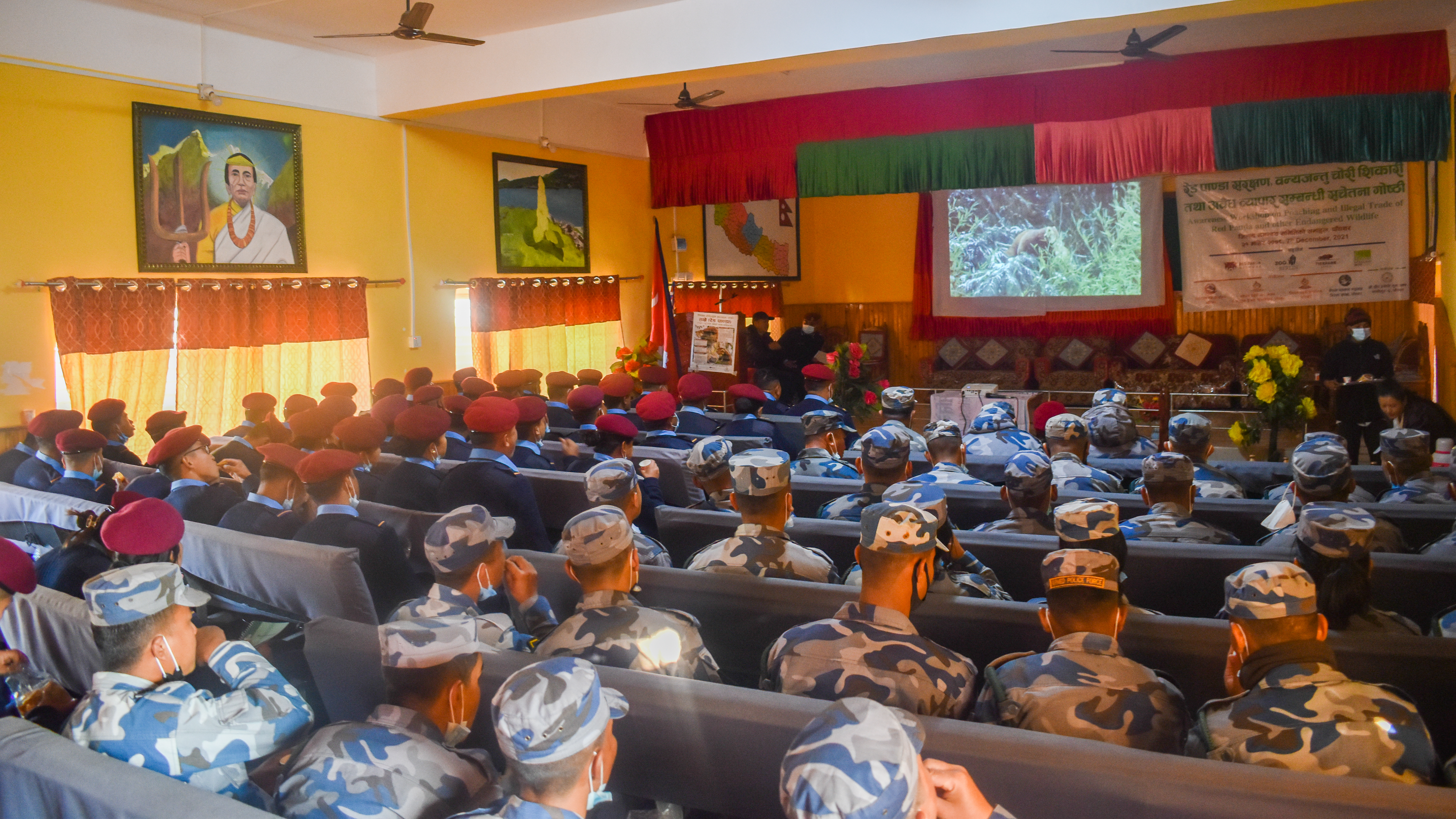 Awareness Workshop for Security Officials in Panchthar district.
Awareness Workshop for Security Officials in Panchthar district.
The workshops focused on wildlife crime in Nepal and how to stop it. The rise in red panda poaching during the COVID-19 pandemic — emphasizing information on the increasing trends of pelt trade and trafficking — and the underlying drivers of red panda poaching were presented and discussed during the workshops. Participants were also educated on current efforts to protect red pandas from poachers, relevant laws and legal provisions, and how to reinforce local conservation programs.
One of the key messages that participants came away with from the workshops is that collaboration is critical to the success of anti-poaching efforts. Agencies that are involved in environmental regulation and enforcement of wildlife protection laws, like the Division Forest Office, Nepal Army, and Wildlife Crime Control Unit, must collaborate — along with local stakeholders, including community organizations like CFUGs — if we are to be successful in stopping the illegal red panda trade.
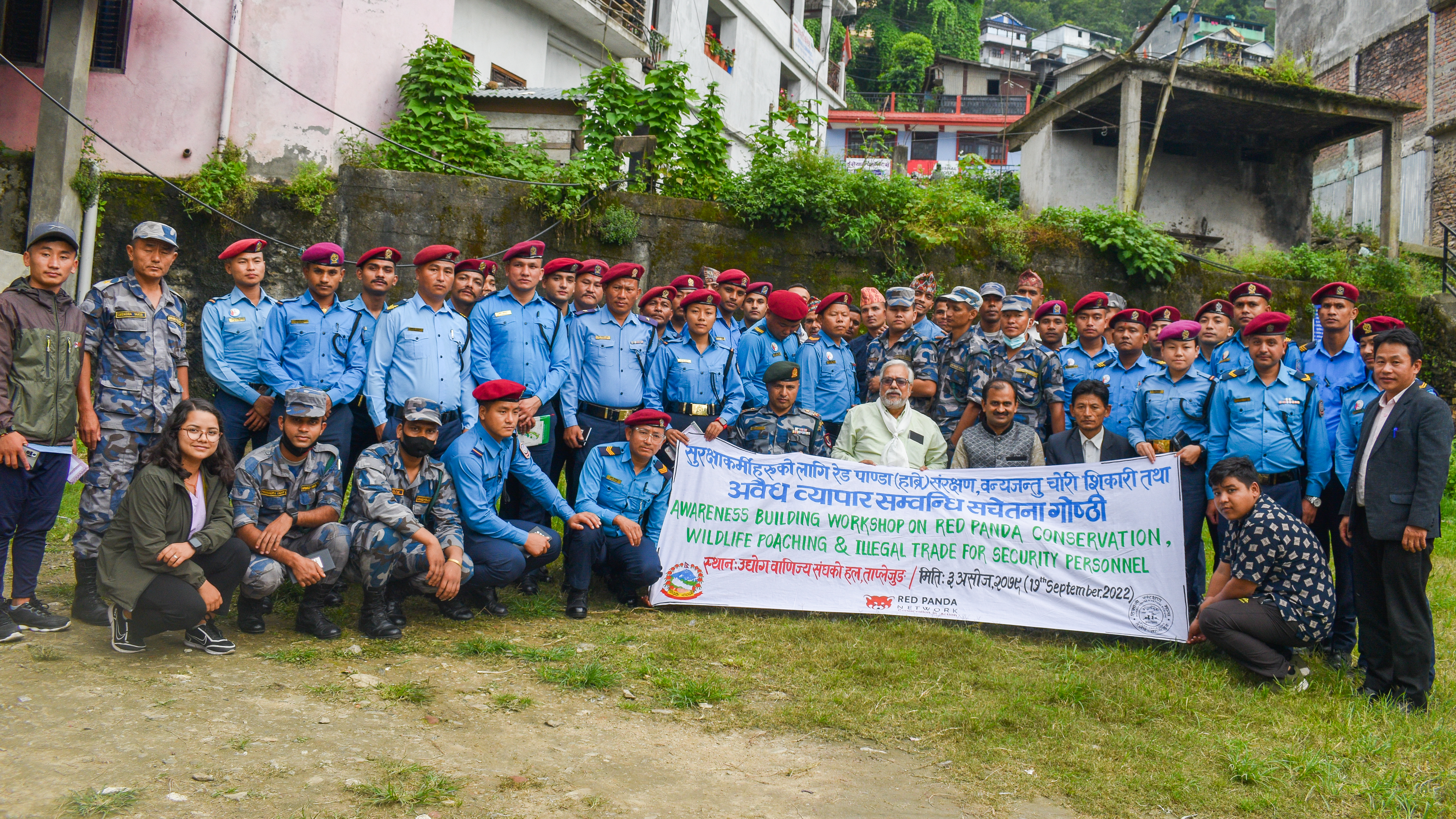 Participants of Illegal Wildlife Poaching and Trade for Security Officials in Taplejung district.
Participants of Illegal Wildlife Poaching and Trade for Security Officials in Taplejung district.
Anti-Poaching Patrols
We currently have 12 anti-poaching networks in Nepal. Local stakeholders, including Forest Guardians, make up anti-poaching network units that patrol habitats at high risk for poaching twice a year. Anti-poaching network members remove traps and snares, educate locals on the importance of red panda conservation, and report poaching activity to enforcement agencies. They also provide capacity-building training to enforcement agencies and other stakeholders and are instrumental in IWT undercover activities.
Patrol routes are selected based on historical red panda sightings and areas identified as high-risk for red panda poaching. In three years (2021 to 2023), the patrol teams spent approximately 591 hours patrolling over 481 kilometers of red panda habitat in 42 Community Forests!
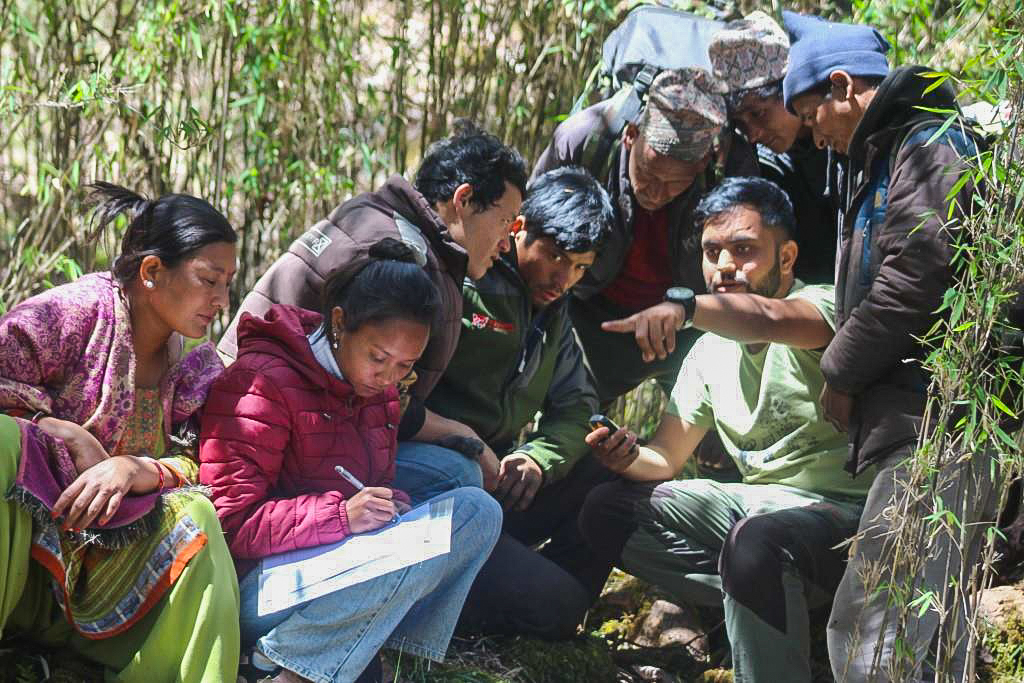 Anti-poaching network unit during forest patrol in western Nepal.
Anti-poaching network unit during forest patrol in western Nepal.
Thanks to the amazing work of our anti-poaching networks, there has been a sharp decrease in the number of traps and snares in red panda habitat. There have also been no recorded cases of illegal red panda pelt trade in Nepal in 2023!
With all of this progress and positive updates, we must remember that wildlife crime still threatens the future of the endangered red panda.
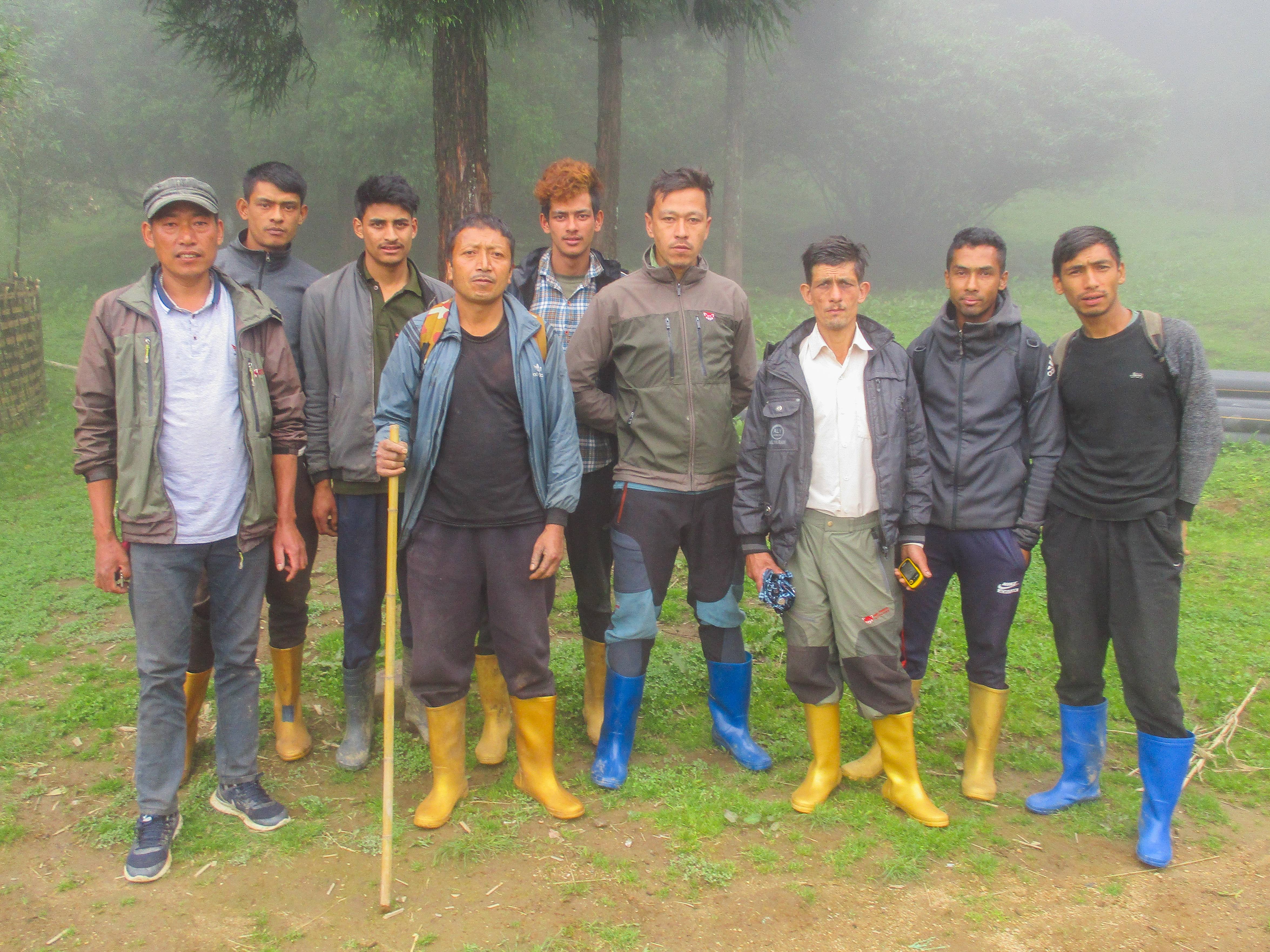 Members of anti-poaching network patrol unit.
Members of anti-poaching network patrol unit.
Anti-Poaching Patrol Manual
While anti-poaching units are patrolling red panda habitat, it is necessary to have a manual that guides anti-poaching efforts to be as effective as possible.
In March of 2023, RPN conducted workshops in Ilam and Taplejung districts (eastern Nepal), where we consulted 50 local CFUG members, FGs, and other stakeholders. Workshop participants were divided into four groups who discussed the following topics: forming a community-based anti-poaching patrolling unit, timing and frequency of patrolling, unit responsibilities, patrol field gear and equipment, identification and recording of illegal activities, and data collection methods.
The Anti-Poaching Patrol Manual was drafted based on these community consultations. The manual will provide a standardized framework with best practices for conducting anti-poaching activities, including patrol procedures and training, health and safety protocols, laws and legal compliance, wildlife protection, stakeholder coordination, data collection and management, and program monitoring and oversight. It will also guide on mitigating illegal harvest of forest resources, habitat encroachment, trade and trafficking of wild animals, forest fires, and unsustainable grazing practices.
The manual will undergo a final review before it is published and distributed to red panda conservation stakeholders.
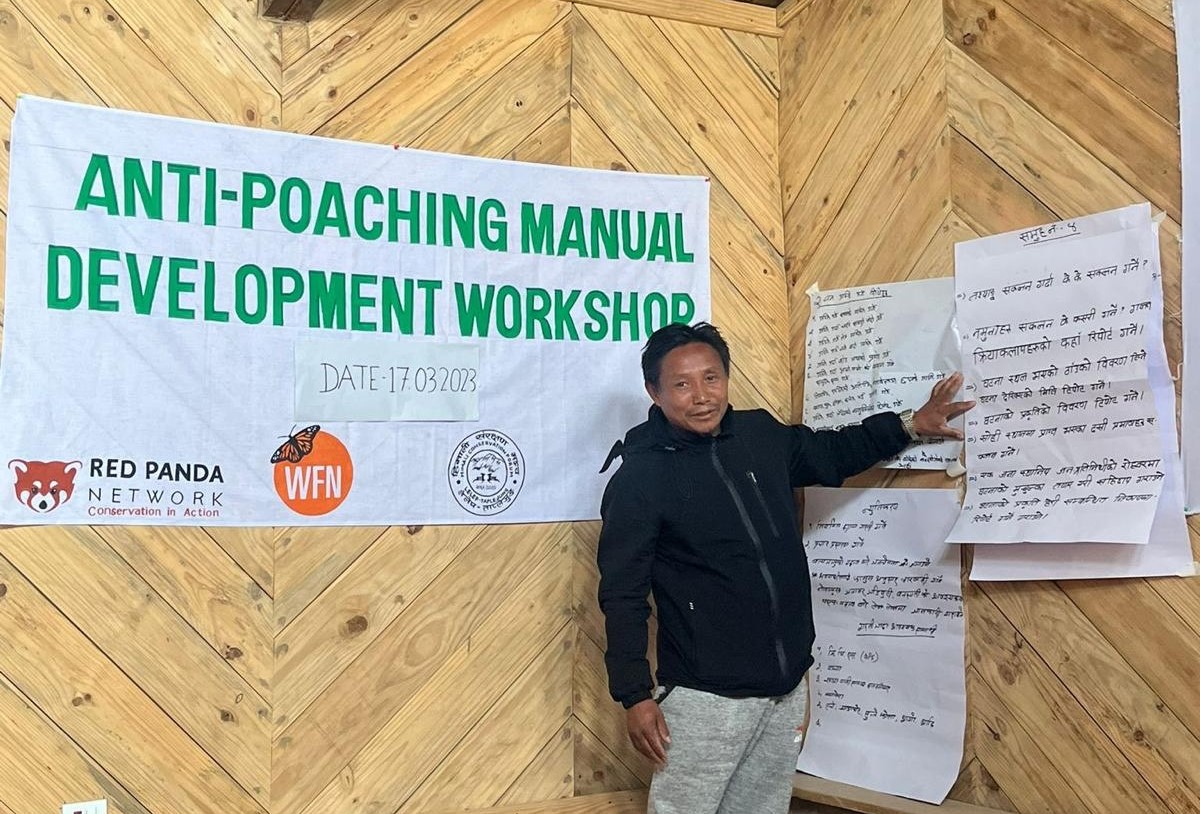 A participant presenting their work during Anti-Poaching Patrol Manual Development Workshop.
A participant presenting their work during Anti-Poaching Patrol Manual Development Workshop.
Support to Enforcement Agencies
Enforcement agencies like the Wildlife Crime Control Bureau (WCCB) are crucial to protecting endangered species like red pandas. WCCB builds multi-agency cooperation and institutional capacities to counter wildlife crime operatives and networks in Nepal.
We are committed to supporting these agencies to conserve wildlife and reduce the threat of poaching. In western Nepal's Kalikot district, we provide logistical support and field gear (GPS, cameras, headlights, laptops, etc) to WCCB enforcement officials to coordinate forest patrols in red panda habitat.
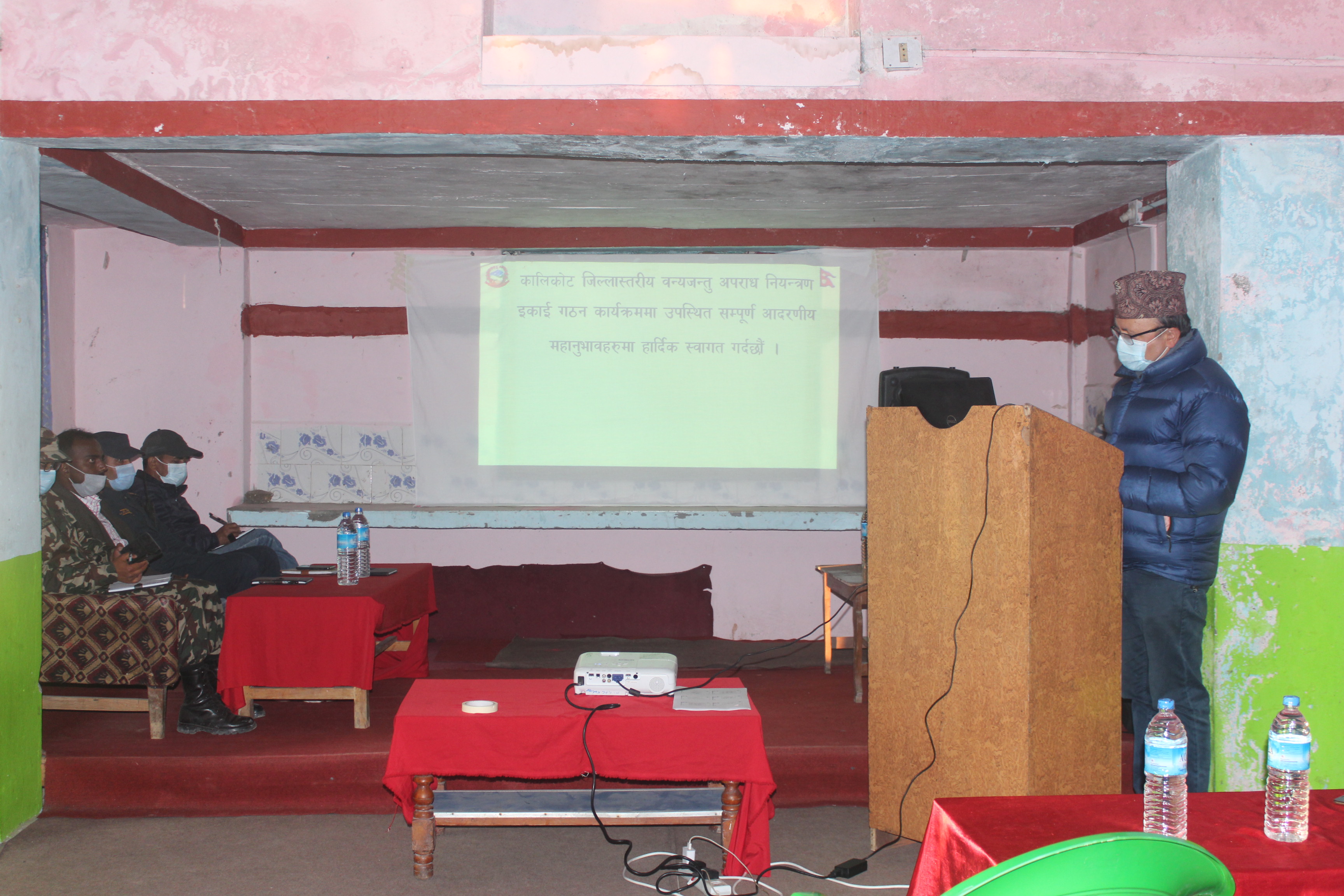
Awareness and Education
Dayahang Rai is a celebrity ambassador for red panda conservation who is helping us combat poaching by raising public awareness.
Why is this important? Because the demand behind red panda poaching and trade in Nepal is primarily based on misinformation. Red pandas are trapped and removed from the wild despite having no value in the illegal markets.
Part of this outreach initiative involved distributing and installing posters and boards displaying information about red panda behavior and habitat, threats to their survival, conservation importance, fines and penalties for illegal poaching and the trade of red pandas, and how red pandas (alive or dead) have no value.
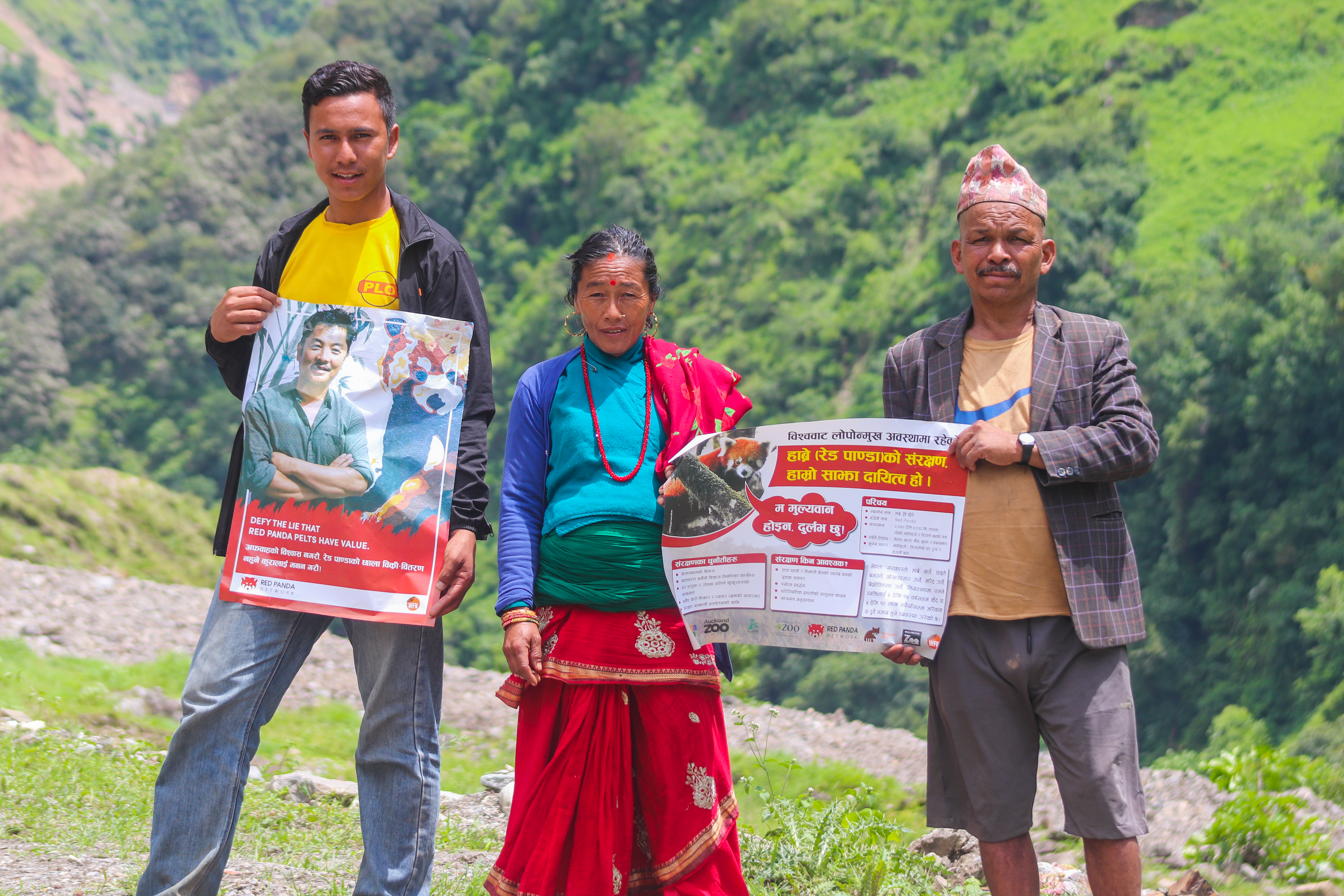 Local people with red panda conservation awareness poster in Bhojpur district.
Local people with red panda conservation awareness poster in Bhojpur district.
The posters and information boards were prepared in the local Nepali and English languages, using a combination of texts and pictures that make them visually appealing and informative. RPN reached over 50,000 local people through these posters and boards last year.
Join Dayahang Rai and RPN on International Red Panda Day 2023 in keeping red pandas alive and wild! Thanks to support from Scentbird and ZooBoise, you can double your impact for our No Panda Poaching campaign right now! That's right — all donations are matched x2 through Saturday, September 16th at midnight Pacific Time.
 Daya Hang Rai, celebrity ambassador for red panda conservation.
Daya Hang Rai, celebrity ambassador for red panda conservation.
